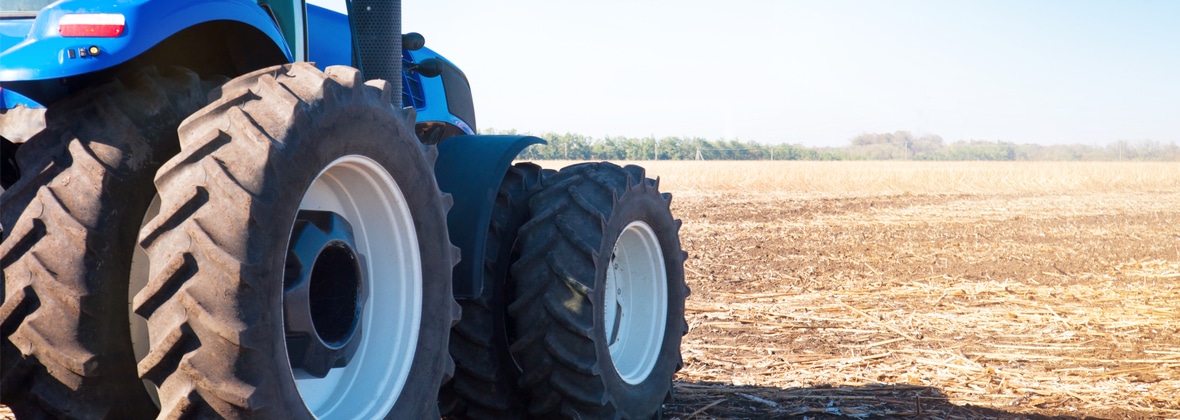Buying For The Farm: How To Choose The Best Agriculture Tires For Sale
April 1, 2022
Tires

To help farmers feed cities and fuel industry as efficiently as possible, we’re proud to offer the best selection of agriculture tires for sale in 2022, all under one roof, along with unbiased advice from expert tire technicians.
And if it’s your first time buying tires for the farm, we’re happy to answer any questions, walk you through your options, and create a shortlist of recommendations based on your unique workload, preferences, and tire budget.
Read on for some smart shopping tips and learn about our best agriculture tires for sale, or contact your local TIRECRAFT to start a free consultation straight away.
3 Tips To Help Choose The Best Agriculture Tires For Sale In 2022
- Choose the right agriculture tire type. If you need to work in mud, loose dirt, or snow, R1 tires offer deep treads to perform in the toughest field conditions. If you’re looking to minimize turf damage when using compact tractors in gardening or landscaping applications, R3 tires, with their shallower tread depth, might be a better choice. R4 tires are used most often in roadwork and hard ground applications, with a design focused on wear-resistance to last longer under heavy loads on asphalt and gravel.
- Choose between bias and radial agriculture tires. Both bias and radial agriculture tires are round, made of rubber, and full of air, but that’s pretty much where their similarities end. Radial tires are designed so that the sidewall and tread function as two independent features, whereas bias tires are constructed with overlapping layers. As such, bias agriculture tires enjoy better puncture resistance, while radials get better traction.
Nowadays, many farmers lean towards radials, since they tend to last longer, their wide footprint reduces compaction, and they can handle the larger equipment that’s being produced today. For example, sprayers, combines, tractors, and other equipment that carries heavy loads absolutely need radial tires. That said, plenty of older, smaller equipment does just fine with bias tires, and they’re still a popular choice in Ontario. If you need help determining what’s best for your equipment, ask your local TIRECRAFT expert.
- Select the correct load index for the job in question. Generally speaking, you want a high-speed load index, despite the fact that you won’t be driving most equipment at high speeds. In the field, agriculture tires with a high load index can drive down your air pressure, provide better fuel economy, and increase traction, all while reducing soil compaction in the field.
Browse All The Best Agriculture Tires For Sale: Contact TIRECRAFT
We carry all the best agriculture tires for sale, including:
- Michelin agriculture tires
- General Tire agricultural tires
- Goodyear agricultural tires, and more
To start a free consultation and get a personalized shortlist of recommendations, use the Find a TIRECRAFT tool.
Back

